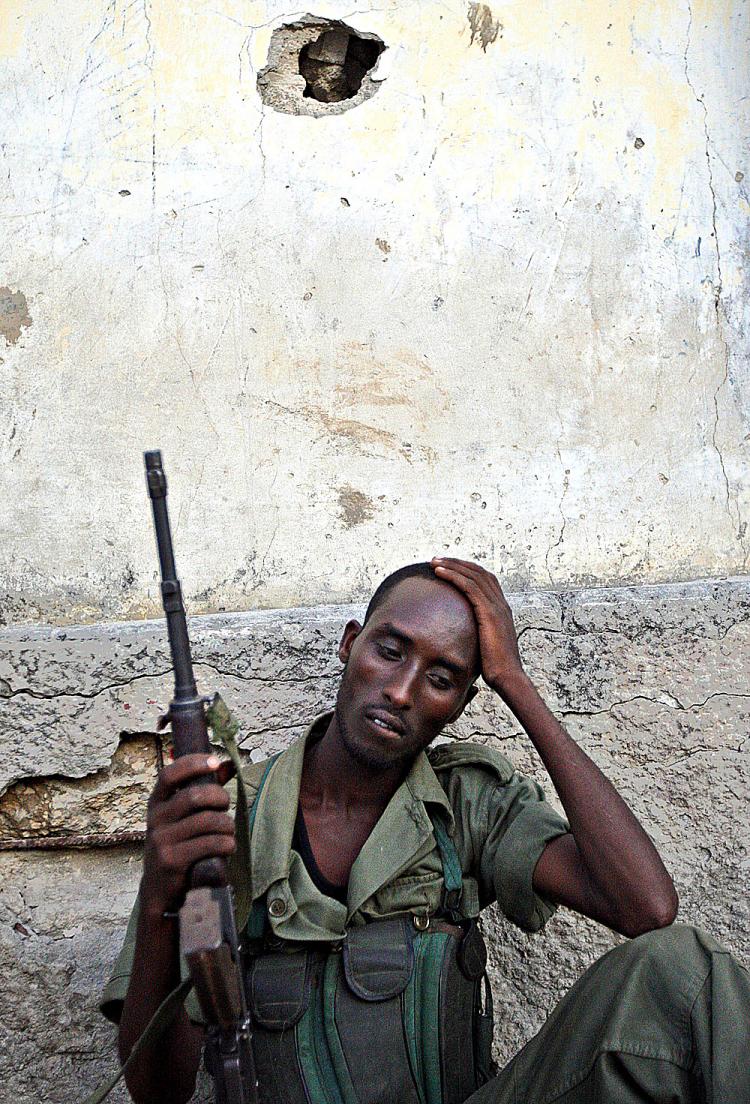“If Somalia fails, it will fail like a Catherine Wheel” – in conversation with Jonathan Ledgard, author of ‘Submergence’ – By Magnus Taylor

“I’ve given up on being negative – there are too many things to save, and too many important things to do,” says Jonathan Ledgard – a foreign correspondent and author whose work has been compared with that of the German great W.G. Sebald. Ledgard is currently the East Africa correspondent of The Economist and his most recent novel, Submergence, is set, substantially, in Somalia.
Ledgard is a serious and thoughtful writer, seriously thoughtful might be a better description, and Submergence covers many themes – from Islamism to oceanic exploration – but is really concerned with a bigger, broader problem – the survival of the human species. Whilst Ledgard has written a novel which is studiously “anti-anthropomorphic” he has also produced a rare literary portrait of Somalia – a harsh and often cruel region of the world in which the author sees many of the environmental and political challenges that will characterise the future history of the human race.
In Submergence Somalia is the setting where James More – a member of the British secret service passing himself off as a water engineer – is held by members of the Islamist group Al Shabaab and a collection of Al-Qaeda affiliated foreign fighters pursing Jihad in one of the world’s least forgiving environments. More’s narrative makes up around a third of this tightly woven novel – the accompanying sections being the story of Danielle Flinders, a biomathematician with a fascination with the deep oceans as she prepares to make a dive into an ocean trench, and the brief but intense period which they spent together, as lovers, in a luxury French hotel overlooking the Atlantic coast.
The Somalia section of the book should, as Ledgard intended, make us profoundly reconsider how we perceive the relationship of such a place with the world. In this sense, the local should be appreciated only in the context of far greater global forces that impact upon the region’s own collapse. Ledgard has visited Somalia on many occasions, and his portrayal of the country is of a place at “˜the end of the line’ – a marginal zone of environmental degradation and conflict which has forced its population into a Dante-esque existence, most starkly portrayed through the description of a mass humanitarian ‘feeding’ in the port city of Kismayo, where a baby is trampled under foot in the rush to receive assistance. Even the hardcore of foreign Islamists from Chechnya, Uzbekistan, Pakistan and Yemen are only there because there is nowhere else for them to go.
Whilst the hellish nature of existence in Southern Somalia may be deliberately overdrawn, Ledgard is strong in his belief that “there is land now that cannot support human beings in the numbers it is being required to.” He is not a gloomy neo-Malthusian, but he is not far from it, and a story recounted in the book concerning the population collapse of the Somali spiny lobster – fished to extinction in unregulated coastal waters, and consumed thoughtlessly on expense accounts in Dubai – is a metaphor for the destruction of resources worldwide, by an expanding global population.
Ledgard’s deep experience of Eastern Africa is evident and impressive in its attention to detail. More’s tailing of a senior al-Qaeda commander to Madagascar is unmistakably based on the story of Fazul Abdullah Muhammad – a native of the Comoros islands – who was allegedly involved in the bombing of the US embassy in Nairobi in 1998, hunted by the CIA, and killed earlier this year in Mogadishu. The description of the stoning to death of a 13 year old girl, gang raped but convicted of adultery by Islamic leaders, was a real event which was widely reported in 2008.
Ledgard himself is not entirely pessimistic about Africa’s future, and with his Economist hat on he states that “In the next 10 years you should put all your money and resources into Africa and you’ll make a lot of money.” However, this “˜Africa Rising’ narrative doesn’t change the fact that almost all African governments – Somalia being an extreme example – have failed to build a future for their young people. Therefore, in the medium term, he argues that it is likely “we’ll see some very violent ruptures in African countries.” This is the larger “˜civilizational point’ that Ledgard is making with Submergence – “it’s not clear whether this country, or Africa, is going to make it…this is a point in time at which we are making big decisions about who we let in and leave behind.”
Somalia is not a country that will fail meekly. If it fails, it will fail “like a Catherine wheel,” and is perhaps doing so already. The creative forces of commerce however still survive in the country – the livestock trade with the Arabian Peninsula, for example, is returning – but without solving vast political problems, without ensuring there is government that supplies public goods for its people, and prevents, through planning, the further environmental degradation of the land, the country is destined to foster destructive forces that drag it further into violence and chaos.
Ledgard states that he would like to see more writing on Africa that “pulls back” and asks “where are we actually heading?” He himself is a writer doing exactly this on both a continental and global scale. For those interested in Somalia, or Africa in general, Submergence is a particular pleasure as it considers seriously, with convincing detail, their place in the world.
Magnus Taylor is Editor of African Arguments.







[…] “If Somalia fails, it will fail like a Catherine Wheel†– in conversation … Angola Oil & Gas News | Deep Prospect on A letter from Warrap State: South Sudan's student's – Children of the Revolution – By Naomi Pendle · A World In Decline? – Searching For Hope | History In Progress on Revisiting Biafra: civil war … https://africanarguments.org/ — Wed, 14 Dec 2011 03:34:01 -0800 […]
[…] https://africanarguments.org/2011/12/14/%E2%80%9Cif-somalia-fails-it-will-fail-like-a-catherine-wheel… […]
The fact on the ground and the interests of the parties involving in Somalia are quite deeply unconnected. Let alone the foreign parties; even all the three clans got their own different interests. These interests chocked or override the mobilization of the people in to oneness. Of course I appreciate your positives aspirations as I appreciate the fact in issue.
course I appreciate your positives aspirations as I appreciate the fact in issue.
Magnus, that’s a great review. Can’t wait to get my hands on the book for Christmas reading.
thanks,
James